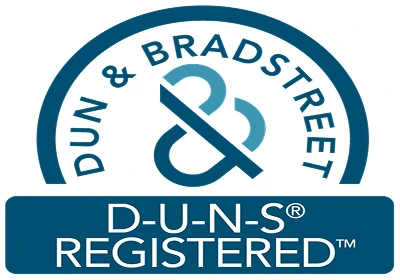Polymers and Resins Published Insights
Published Date : 08 Feb, 2026
The global plastic compounding market is estimated to be valued at USD 72.95 Bn in 2025 and is expected to reach USD 118.81 Bn by 2032, exhibiting a compound annual growth rate (CAGR) of 7.2% from 202... View more
Published Date : 08 Feb, 2026
The phenolic resins market is estimated to be valued at USD 13.92 Bn in 2025 and exhibit at a compound annual growth rate (CAGR) of 4.6% from 2025 to 2032. Phenolic resins are synthetic polymers that are produced by the reaction of ph... View more
Published Date : 08 Feb, 2026
The Global Biopolymers Market is estimated to be valued at USD 21.66 Bn in 2025 and is expected to reach USD 45.86 Bn by 2032, exhibiting a compound annual growth rate (CAGR) of 11.3% from 2025 to 203... View more
Published Date : 08 Feb, 2026
Purging Compound Market Size and Forecast – 2025 – 2032 The global Purging Compound market size is estimated to be valued at USD 310.6 million in 2025 and is expected to reach USD 547.7 million by 2032, exhibiting a compound annual growth rate (CAGR) of 9.1% from 2025 to 2032. Overview... View more
Published Date : 08 Feb, 2026
The recycled plastics market is estimated to be valued at USD 46,590.3 Mn in 2025 and is expected to reach USD 89,072.1 Mn by 2032, exhibiting a compound annual growth rate (CAGR) of 9.7% from 2025 to 2032. The recycl... View more
Published Date : 08 Feb, 2026
Chromatography resins are solid substrates functionalized with specific functional groups designed for separation, purification, and analytical applications of biomolecules and chemicals. They find wide application in pharmaceutical and biopharmaceutical manufacturing... View more
Published Date : 08 Feb, 2026
Caprolactam are organic compounds with molecular formula ((CH2)5CNH). It is a colorless, solid, toxic substance and process an irritant properties. The caprolactam market is segmented by nylon 6 fiber and nylon 6 resin. The nylon 6 fiber is the largest segment and is ... View more
Published Date : 08 Feb, 2026
The molded plastic market is estimated to be valued at USD 597.30 Bn in 2025, exhibiting a compound annual growth rate (CAGR) of 6.3% from 2025 to 2032. The molded plastic market has experienced steady growth over the past few decades... View more
Published Date : 08 Feb, 2026
The adipic acid market is estimated to be valued at USD 6.73 Bn in 2025, exhibiting a compound annual growth rate (CAGR) of 4.5% from 2025 to 2032. Adipic acid is an important raw material used in the manufacturing of nylon 6,6 ... View more
Published Date : 08 Feb, 2026
Wood adhesive refers to adhesive that assists in bonding pieces of wood together. They are commonly used in furniture, shipbuilding, and arts and crafts. Hide glue, epoxy, PVA glue, and polyurethane are some of the most used wood adhesives. These adhesives are water r... View more
Published Date : 08 Feb, 2026
Overview Automotive labels serve the purpose of displaying company name, cost, technical information, components information, other specifications, and barcode in automobiles. These labels are durable even in high temperature. They are required to cope with engine conditions including high tem... View more
Published Date : 08 Feb, 2026
Overview Polybutadiene is a polymer formed by polymerization of 1, 3-butadiene. It is a synthetic rubber, which is mostly used in the production of tires, and also to enhance the resistance of polystyrene and ABS (acrylonitrile butadienestyrene). Production of golf balls and coating of electronics ... View more
Published Date : 08 Feb, 2026
The global conductive polymer capacitor market is estimated to be valued at USD 4,835.2 Mn in 2025, exhibiting a compound annual growth rate (CAGR) of 13% from 2025 to 2032. Conductive polymer capacitors are rapidly replacing tr... View more
Published Date : 08 Feb, 2026
Because of their pathogen-inhibiting capabilities, antimicrobial polymers are increasingly being employed as an alternative for traditional materials in the healthcare sector for the manufacture of medical tools such as ventilators and anesthesia machines. This plasti... View more
Published Date : 08 Feb, 2026
Medical polymers is the term used for the building blocks of most medical devices today. These polymers include a large range of functional components such as elastomeric fibers, polyethylene glycol, plastics, rubber micro particles, polyethylene Teflon, rubber powder... View more
Published Date : 08 Feb, 2026
The High Density Polyethylene (HDPE) market is estimated to be valued at USD 59,631.40 Mn in 2025, growing at a compound annual growth rate (CAGR) of 4.9% from 2025 to 2032. High density polyethylene (HDPE) is a ... View more
Published Date : 08 Feb, 2026
The global photocatalytic coating market is estimated to be valued at USD 1,071.6 Mn in 2025 and is expected to reach USD 1,855.8 Mn by 2032, exhibiting a compound annual growth rate (CAGR) of 8.2% from 2025 to 2032. ... View more
Published Date : 08 Feb, 2026
The Global Polycarbonate Market is accounted for USD 22.6 Bn in terms of value by the end of 2022. Polycarbonates are thermoplastic polymers that are used as tough materials across several industrial applications. These polycarbonates can be easily pr... View more





